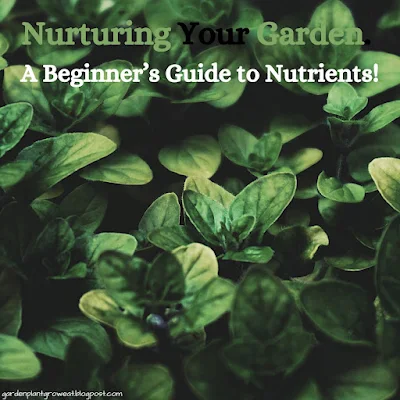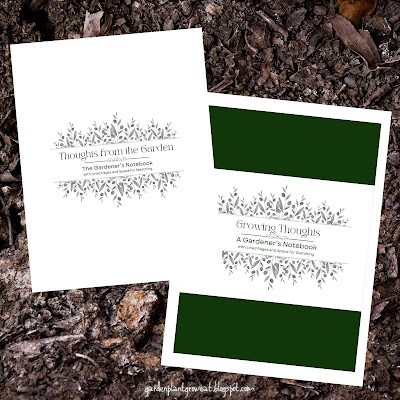Garden Nutrients Explained. A Beginner’s Guide to Healthy Plants!
Garden Nutrients Explained. A Beginner’s Guide to Healthy Plants!
If your plants are not thriving, yellowing leaves or slow growth are often signs that garden nutrients are missing. Whether you are growing your vegetables in raised beds, containers, or an indoor garden, understanding how nutrients work is one of the most important skills a gardener can learn.
In this beginner-friendly guide, we break down what garden nutrients are, how they support healthy plant growth, and how to improve your nutrient levels naturally—without overwhelm or guesswork.
What Are Garden Nutrients
And Why Do Plants Need Them?
Nutrients are the essential elements plants require to grow, develop, and produce, whether in a veggie, raised bed, or indoor garden.
Macronutrients Explained Simply...
– The primary building blocks that plants need in large quantities. These macronutrients include:
- Nitrogen (N): Promotes leafy growth and vibrant green foliage.
- Phosphorus (P): Supports root development and flowering.
- Potassium (K): Enhances overall plant health, disease resistance, and fruit production.
Signs of Nutrient Deficiency
Recognizing nutrient deficiencies early can save your plants from irreversible damage.
Common signs of nutrient deficiency to look for:
- Yellowing leaves: Often a sign of nitrogen deficiency.
- Stunted growth: Could indicate a lack of phosphorus.
- Brown leaf edges: May signal potassium deficiency.
- Pale or discolored foliage: Can point to micronutrient shortages like iron or magnesium.
If your plants show these symptoms, it’s time to reassess your nutrient management strategy.
Micronutrients and Why They Matter
– Needed in smaller amounts but equally vital. These include calcium, magnesium, sulfur, and trace elements like iron, zinc, and manganese.
Plants absorb all these nutrients through the soil or growing medium, making it essential to maintain a nutrient-rich environment.
Why do “small” nutrients still matter?
Even though plants only need micronutrients in tiny amounts, these “small” nutrients are essential for healthy growth, strong yields, and disease resistance. Skipping them can cause major problems — and no amount of nitrogen, phosphorus, or potassium alone will fix it.
Key Micronutrients Every Gardener Should Know
Nutrient / Role in the Plant / Signs of Deficiency
- Iron (Fe) / Helps produce chlorophyll for green leaves / Yellowing between leaf veins (chlorosis)
- Manganese (Mn) / Activates enzymes for photosynthesis / Brown spots, stunted growth
- Zinc (Zn) / Regulates growth hormones / Small or distorted leaves, weak stems
- Copper (Cu) / Supports flowering and fruit development / Poor flower formation, reduced fruit yield
- Boron (B) / Essential for cell wall development and fruit set / Blossoms drop, hollow stems
- Molybdenum (Mo) / Helps process nitrogen / Yellowing leaves, poor growth
- Chlorine (Cl) / Maintains water balance and photosynthesis / Wilting, leaf curling
Why Micronutrients Matter
Growth & Development – Micronutrients act as helpers for essential enzymes. Without them, plants cannot use macronutrients properly. For example, plenty of nitrogen won’t help a plant grow green leaves if iron is missing.
Flowering & Fruit – Nutrients like boron and copper are crucial for blossoms and fruit set. Missing these can mean flowers fall off or fruits stay tiny.
Disease Resistance – Plants low in zinc or manganese may be more susceptible to pests and diseases.
Overall Yield & Quality – Even subtle deficiencies can reduce size, flavor, and texture of vegetables and fruits.
Quick Beginner Tips
- Test Your Soil – Soil tests reveal which micronutrients are lacking.
- Use Organic Matter – Compost and mulch help naturally balance nutrients.
- Don’t Overdo N-P-K – Too much nitrogen can block uptake of micronutrients.
- Rotate Your Crops – This prevents depletion of specific micronutrients in your soil.
Remember: Micronutrients may be “small,” but their impact on plant health is enormous. Balancing them is key to a thriving garden.
How Nutrients Work in Soil...
Each type of garden has unique nutrient requirements.
Raised Garden Beds:
These often require frequent nutrient replenishment due to the confined space. Incorporate compost, aged manure, or organic fertilizers at the start of each season.
Indoor Hydroponic Gardens:
Monitor pH levels and nutrient concentrations closely. Using organic solutions can mimic soil-based nutrient availability while reducing environmental impact.
Container & Indoor Gardens:
For container-grown plants, refresh the potting mix annually and top-dress with compost or worm castings for ongoing nutrient support.
Soil vs Compost vs Fertilizer (Quick Overview)
To maintain a garden brimming with life, focus on organic and environmentally friendly ways to enrich your soil or growing medium. Think about…
How to Improve Garden Nutrients Naturally.
Natural Soil Amendments
- Coffee Grounds: Add acidity and nitrogen.
- Eggshells: Provide calcium.
- Banana Peels: Enrich potassium.
Composting
Composting kitchen scraps, grass clippings, and yard waste creates nutrient-dense organic matter that improves soil structure and provides a steady release of nutrients.
Organic Fertilizers
Use natural options such as bone meal, blood meal, or seaweed extract to replenish specific nutrients without harming the environment.
Cover Crops
Planting cover crops like clover or rye in the off-season prevents soil erosion and restores nutrients, especially nitrogen, through natural processes.
Crop Rotation
Rotating crops in your veggie garden prevents nutrient depletion and disrupts pest cycles, leading to healthier soil.
Hydroponic Nutrient Solutions
For indoor hydroponic gardens, consider opting for organic nutrient solutions tailored to your garden needs, ensuring a sustainable approach to soilless gardening.
Common Nutrient Mistakes Beginners Make
Even with the best intentions, beginners often make nutrient mistakes that reduce plant growth, waste money, and even damage the garden.
Here are the most common ones:
1. Over-Fertilizing
What it is:
Adding too much fertilizer, too often, thinking more nutrients = faster growth.
Why it’s a problem:
- Excess nitrogen can burn plant roots.
- High fertilizer levels can block micronutrient uptake, meaning your plant may still suffer from deficiencies.
- Can cause rapid leaf growth but poor flowering or fruiting.
Quick Tip:
Follow instructions on fertilizers.
Use slow-release or organic fertilizers to avoid spikes.
Less is often more — plants will absorb what they need.
2. Ignoring Soil Health
What it is:
Focusing only on fertilizer, without caring for soil structure, organic matter, or microorganisms.
Why it’s a problem:
- Fertilizer is only part of the equation.
- Poor soil drains poorly, compacts easily, and limits root growth.
- Plants in unhealthy soil can’t use nutrients efficiently, no matter how much you add.
Quick Tip:
Add compost or aged manure each season.
Mulch regularly to retain moisture and feed soil life.
Rotate crops to keep soil balanced.
3. Treating Symptoms, Not Causes
What it is:
Seeing yellow leaves, poor growth, or weak fruits and immediately adding more fertilizer — instead of figuring out the underlying issue.
Why it’s a problem:
- Symptoms can be caused by micronutrient deficiencies, pH imbalances, pests, or water issues.
- Blindly adding nutrients may worsen the problem or create new issues.
- Can lead to wasted money and frustrated gardeners.
Quick Tip:
Observe and diagnose first.
Test soil if unsure.
Adjust nutrient strategy based on specific deficiencies, not just general guesses.
Healthy gardens are not about dumping fertilizer. They are about balanced soil, careful observation, and understanding what your plants actually need.
Avoid these three mistakes to find better growth with fewer all-round problems!
Helpful Tools for Tracking Nutrients
To better understand your garden’s nutrient needs, you can also consider using the following tools:
Soil Test Kits
These provide insights into your soil’s pH and nutrient content, helping you determine what amendments are necessary.
Compost Thermometers
Monitor compost temperature to ensure it’s breaking down effectively, producing high-quality organic matter.
Nutrient Monitors for Hydroponics
Devices that measure nutrient solution levels help maintain balance in your hydroponic systems.
Final Thoughts for Beginner Gardeners...
Understanding the role of nutrients in your garden is a cornerstone of successful gardening.
By focusing on organic and sustainable practices, you can nurture your plants, protect the environment, and enjoy the fruits (and veggies!) of your labor.
What are your favorite methods for enriching garden nutrients?
Feel free to share your gardening tips and experiences in the comments below!


.jpg)



Comments
Post a Comment